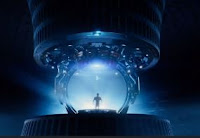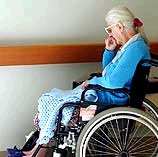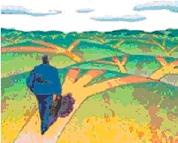How is it possible to change an event after the event happens? At the quantum level, that is what can occur. Time is not linear but somehow jumbled. (Does this have philosophic implications for the study of free will? That is, events can be changed at the micro level.)
If you aren't confused by quantum physics, you really haven't understood it. (Neils Bohr)
In a sense, time machines already exist. In quantum theory, actions in the present could change the past, or at least determine it.






